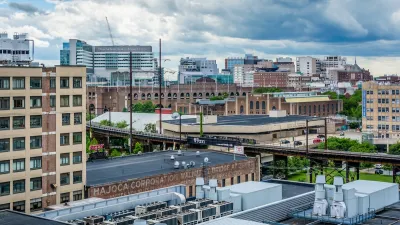Seattle is faced with an affordable housing crisis that has led the new Planning & Community Development Director Sam Assefa to look globally for solutions.

When Samuel Assefa was nominated to lead Seattle's newly consolidated Office of Planning & Community Development in 2016, Mayor Ed Murray touted his experience implementing holistic planning in cities around the United States and the world. In an exclusive interview with Assefa, The Planning Report investigates the global lessons he is applying to the tumultuous situation in Seattle.
Seattle is currently actively trying to address equity and mitigate displacement of existing residents as the communities bear the burden of increased population and diminished housing production. Assefa, who previously oversaw neighborhood redevelopment in San Francisco, shares what he's learned from other cities—and what other cities can learn from Seattle—on producing affordable housing, accommodating future growth, and revitalizing city centers for the next generation. Communication of why new housing needs to occur in many parts of the city, he says, is critical for residents to understand the overall challenge and opportunity of planning.
As part of Seattle's Housing Affordability and Livability Agenda, the city released a report that laid out two scenarios regarding upzoning and modeling potential displacement. In one, neighborhoods across the city are evenly upzoned for greater density. As Jen Kenney of Next City lays out: "In the other, neighborhoods with high displacement risk and low opportunity are upzoned to a lesser degree. The report, a draft environmental impact statement for the city's new inclusionary zoning policy, gets to the heart of an ideological battle playing out in many cities."
Assefa helped establish a Capital Cabinet with the heads of all the departments that manage capital projects, such as City Light (the city's electric utility), Public Utilities, Parks, Transportation, Housing, Economic Development, and a few others. The cabinet helps better coordinate and integrate the city's investments.
Using the holistic model of local government he learned from Mayor Richard Daley in Chicago, Assefa has embedded the 'team-first' mentality that believes that each of the services the city provides should not be viewed as the work of individual departments and rather be viewed as services of "the city."
Now, Assefa is charged with envisioning the future of the Seattle Center, which is one of Mayor Murray's key initiatives. Utilizing his experience of championing Millennium Park in Chicago, Assefa is thinking about how the Seattle Center can remain relevant to future generations, and what version of the Millennium Park story could take place in Seattle.
Read more in The Planning Report.
FULL STORY: Seattle's Management of an Integrated, Equitable Budget & Planning Process Has a Leader

Study: Maui’s Plan to Convert Vacation Rentals to Long-Term Housing Could Cause Nearly $1 Billion Economic Loss
The plan would reduce visitor accommodation by 25,% resulting in 1,900 jobs lost.

North Texas Transit Leaders Tout Benefits of TOD for Growing Region
At a summit focused on transit-oriented development, policymakers discussed how North Texas’ expanded light rail system can serve as a tool for economic growth.

Using Old Oil and Gas Wells for Green Energy Storage
Penn State researchers have found that repurposing abandoned oil and gas wells for geothermal-assisted compressed-air energy storage can boost efficiency, reduce environmental risks, and support clean energy and job transitions.

Santa Barbara Could Build Housing on County Land
County supervisors moved forward a proposal to build workforce housing on two county-owned parcels.

San Mateo Formally Opposes Freeway Project
The city council will send a letter to Caltrans urging the agency to reconsider a plan to expand the 101 through the city of San Mateo.

A Bronx Community Fights to Have its Voice Heard
After organizing and giving input for decades, the community around the Kingsbridge Armory might actually see it redeveloped — and they want to continue to have a say in how it goes.
Urban Design for Planners 1: Software Tools
This six-course series explores essential urban design concepts using open source software and equips planners with the tools they need to participate fully in the urban design process.
Planning for Universal Design
Learn the tools for implementing Universal Design in planning regulations.
Ascent Environmental
Borough of Carlisle
Institute for Housing and Urban Development Studies (IHS)
City of Grandview
Harvard GSD Executive Education
Toledo-Lucas County Plan Commissions
Salt Lake City
NYU Wagner Graduate School of Public Service





























